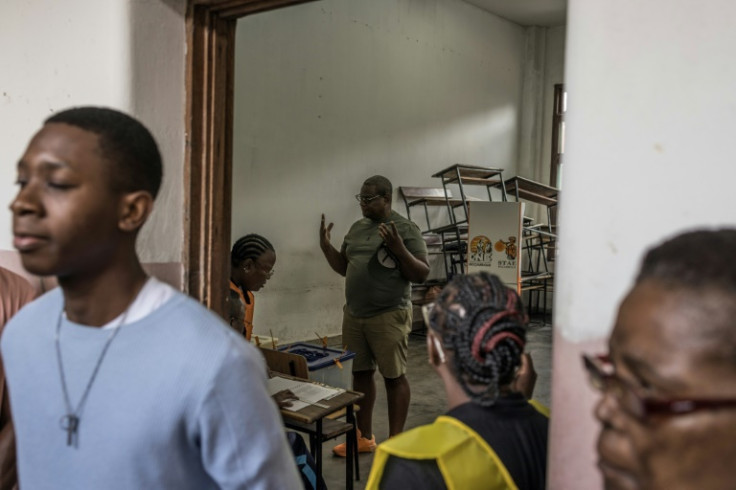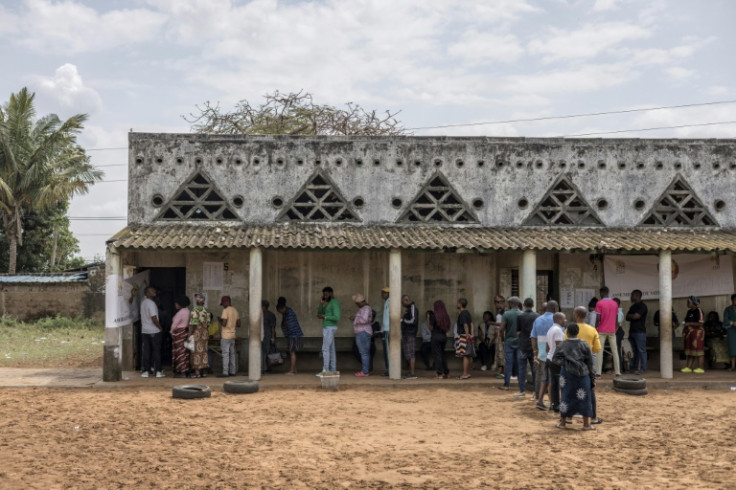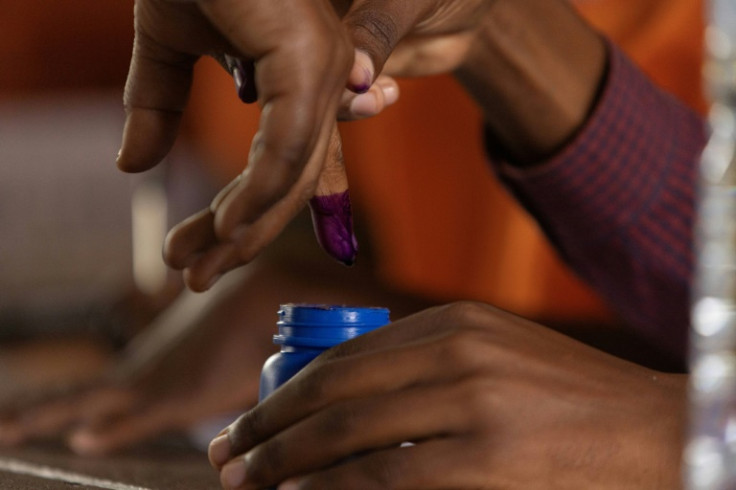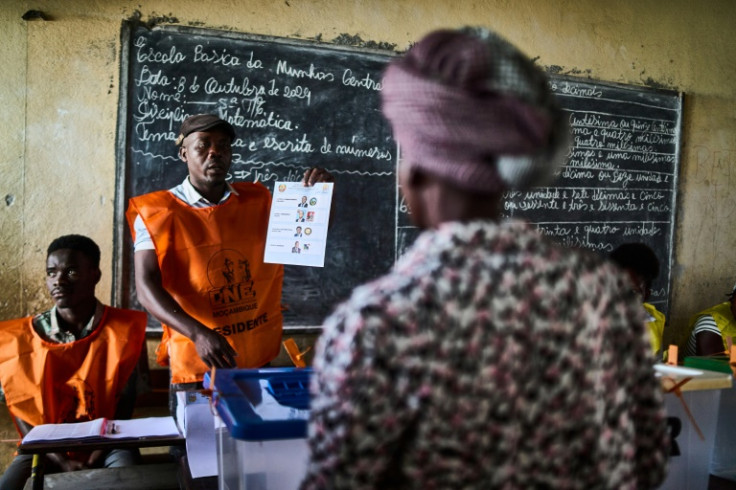Mozambique Starts Tallying Votes In Tense Election

Mozambique began counting votes on Wednesday at the close of tense presidential and parliamentary elections expected to allow the ruling Frelimo party to extend its 49 years in power.
Vote tallying started shortly after polling stations closed at 6:00 pm local time (1600 GMT), with initial results expected in about two weeks.
Two of the main opposition leaders have already warned against electoral fraud in the southern African nation plagued by high levels of poverty and jihadist violence in the north.
Outgoing President Filipe Nyusi, 65, who is stepping down after a two-term limit, called for continued calm and patience after a day of voting with no major incidents reported.
"I would also ask that no group of citizens agitate or threaten others, that everything happen in peace and tranquillity and that we avoid announcing the results ahead of time," Nyusi said.
After casting his vote, opposition candidate Venancio Mondlane was critical of the process, describing the electoral commission as "corrupt people, crooks, scoundrels."
"People are not going to accept this kind of theft, this kind of shamelessness, this kind of electoral banditry," Mondlane told reporters outside a polling station.
Popular among young voters, Mondlane was until June part of the main opposition party Renamo before joining the smaller Optimistic Party for the Development of Mozambique (Podemos).
The last presidential election, in 2019, which Frelimo won with 73 percent of the vote, was marred by irregularities, while municipal elections in 2023 ended up in violence after results were contested by the opposition.
"Change" was the buzzword on many voters' lips, but analysts said they doubted the election would bring much of it.
"Mozambique is ready for a change," said Elchrisio, a 25-year-old student who gave only his first name and was queuing at a polling station in Maputo.
"We need to elect somebody who has the capacity to rule the country," he told AFP.
Participation in the last presidential election was around 50 percent. Observers said it could be higher this year, though no official number has been released.
In addition to a new president, Mozambicans are voting for 10 governors and 250 members of parliament.
Forest engineer Gisela Guambe, 42, who travelled 1,700 kilometres (about 1,000 miles) to vote, said she wanted change in parliament.
"There is not enough debate in parliament now. The opposition needs a different presence," she said.
But analysts warned that was unlikely.
"Nothing is going to change," said Domingos Do Rosario, a political science lecturer at Maputo's Eduardo Mondlane University, pointing to weak institutions and rife political bargaining.
The electoral commission "is a joke", he told AFP ahead of polling day.
"It manufactures voters," said Do Rosario, expressing doubt over the body's claim to have registered 17 million voters from a largely young population of 33 million.
The Frelimo candidate to replace Nyusi is the relatively unknown provincial governor, 47-year-old Daniel Chapo, who also called for calm after he cast his ballot.
His election would mark a generational shift: he would be the first Mozambican president born after independence from Portugal in 1975 and the first not to have fought in the devastating 16-year civil war between Frelimo and Renamo.
The two other candidates are Ossufo Momade, 63, of Renamo, and Lutero Simango, 64, of the Mozambique Democratic Movement.
Simango is also an outspoken critic of Frelimo, whose leaders he describes as "thieves dressed in red", the party's colour.
After casting his vote, Momade called for the "decision of the people to be respected."
More than 74 percent of Mozambique's population lived in poverty in 2023, according to the African Development Bank.
The country had hoped for an economic boost from the discovery in 2010 of vast gas deposits in the north, but jihadist violence in Cabo Delgado province led ExxonMobil and TotalEnergies to suspend their projects.
The economy will need to be a priority for the government, said Aleix Montana, an analyst at the UK-based consultancy Verisk Maplecroft.
"The new president of Mozambique will have to tackle high levels of public debt and weak revenue inflows, as key energy projects continue to suffer delays due to the insurgency in Cabo Delgado," he said.




© Copyright AFP 2025. All rights reserved.





















